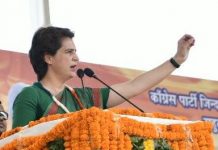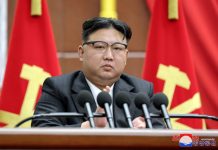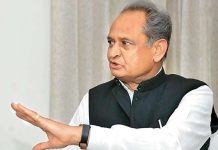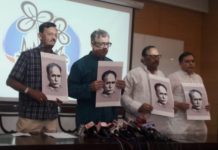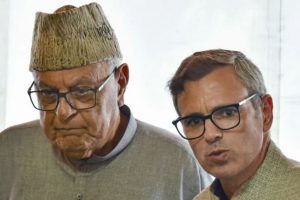 It began when Omar Abdullah in response to the Centre’s new domicile law for J&K urged New Delhi in a tweet to let people of J&K “decide the laws that will govern them”. And to that end he called for restoration of J&K’s statehood and holding of elections.
It began when Omar Abdullah in response to the Centre’s new domicile law for J&K urged New Delhi in a tweet to let people of J&K “decide the laws that will govern them”. And to that end he called for restoration of J&K’s statehood and holding of elections.
But the tweet didn’t go down well with a lot many people in the state turned union territory, who noticed the absence of the demand for restoration of the region’s withdrawn autonomy and accused Omar of sell-out in exchange for his release.
“Your incarceration angered & pained many including myself thinking that one day you will get released to lead the fight against the grave injustice forced upon the people. Sadly you’ve proven that elections & CM’s chair is all that you aspire for,” a Twitter user wrote.
This forced Omar to respond to the criticism. He stood his ground though, promising to talk about Article 370 at an opportune moment.
“Delhi made a mistake notifying the domicile rules during this time of crisis & I made a mistake getting sucked in to this debate at a time when it’s wrong to let politics distract from the #COVID19 fight. I haven’t spoken my mind about 5/8/2019 yet but I will when this is over.”
He added that Twitter was the wrong place to talk about New Delhi’s August 5 move and he will wait until he was “able to find a platform for a detailed explanation”.
Ever since Omar’s release on March 24 and that of father Dr Farooq Abdullah on March 13, the duo has been confronted with a mounting public pressure – mostly expressed through social media – to speak their mind about the withdrawal of J&K autonomy and lead a public resistance to it. But, in response, the father and son have been meaningfully silent.
They have so far fend off pressure by citing the urgent need to fight the COVID-19 pandemic. And this excuse did work until the Centre slipped in the domicile law opening the door to citizenship for outsiders. This is when people began expecting them to respond. Though Omar did slam the move, the phrasing of the response was seen as mild compared to the far-reaching implications of the domicile order. Similarly, the rival PDP led by Mehbooba Mufti or for that matter even the separatist groups have come out with stock criticisms of the move.
But the separatist groups, the PDP and the other smaller Kashmir based parties can seek refuge in the continuing arrest of their leaders. No such luxury for Omar and the father Farooq Abdullah. They have now been released and this is something that is held against them. Their muted response to the Centre’s actions, regarded as assaults on the region’s identity and demography, is seen as deliberate and somehow linked to some quid pro quo with New Delhi. Such speculation has been reinforced by the viral pictures of the alleged bond signed by the released leaders with the government, that obliges them to remain silent about the revocation of Article 370.
“That I undertake that in case of release from detention I will not make any comment(s) or issue statement(s) or make public speeches, hold or participate in any public assembly(s) related to the recent event in state/Jammu and Kashmir, at the present time, since it has potential of endangering the peace and tranquility or law and order in the state or any part thereof for a period of one year,” reads the part of the text of the bond whose authenticity has not been ascertained. But its fallout on how the public looks at the release of many leaders is real.
Meanwhile, Omar is not ready to oblige the public sentiment in Kashmir: “For the time being, regardless of the provocation, I’ll focus on the battle at hand. Twitter is anyway the wrong place to talk about what I feel about 5/8/2019 until I’m able to find a platform for a detailed explanation of thoughts/feelings/plans,” he tweeted in response to criticism of his silence.








